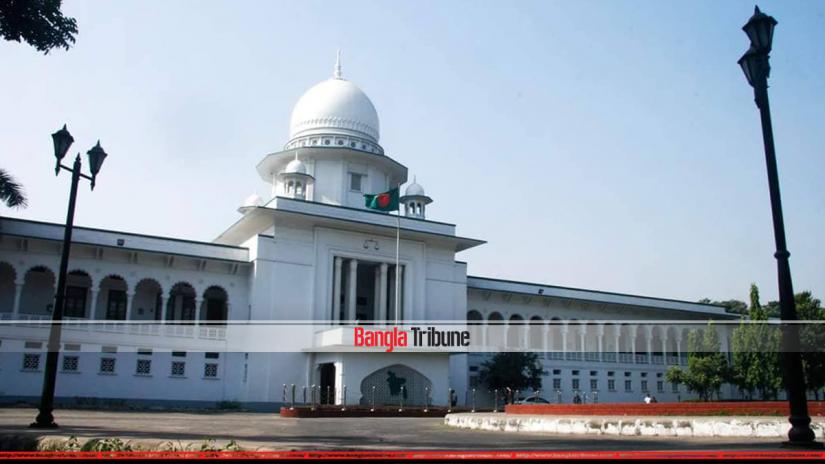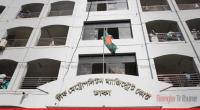 The High Court (HC) has ordered the Bangladesh Standards and Testing Institution to submit a list of all milk supplying farms, both licensed and un-licensed.
The High Court (HC) has ordered the Bangladesh Standards and Testing Institution to submit a list of all milk supplying farms, both licensed and un-licensed.
The bench of Justice Md Nazrul Islam Talukder and KM Hafizul Alam gave the order during a Suo Moto rule hearing on this issue on Sunday (Jun 23).
The BSTI has been ordered to submit the report within two weeks.
Earlier, BFSA submitted a report, corroborating the National Food Safety Laboratory (NFSL) survey report, which found high levels of contaminants in milk and dairy products.
NFSL Dr Shahnila Ferdous also appeared before the court on Jun 21 and described the methods used to collect samples of milk.
The survey results had also prompted the same High Court bench to order the authorities concerned to form a committee and find out how much contaminated milk, dairy products and cow fodders are supplied and sold across Bangladesh. It also wanted those responsible identified.
BFSA formed a 16-member committee on Feb 17, but it did not identify those responsible for the adulteration in its report.
The NFSL report said that molecular analysis found Total Plate Counts (TPC) and Coliform Counts (CC) above permissible limits in 93 out of 96 samples of raw milk, and salmonella in one sample.
Chemical analysis also found, above permissible limits, pesticides in nine samples, lead in five, aflatoxin in three, tetracycline in 10 and ciprofloxacin in one.
Tetracycline is a broad spectrum antibiotic often used on animals, while aflatoxins are poisonous carcinogens that are produced by certain molds which grow in soil, decaying vegetation, hay, and grains.
NFSL had also tested packaged milk samples — 21 local and 10 imported.
A displeased High Court wanted a list of the responsible companies.
Of the local samples, molecular analysis found TPC and CC above permissible limits in 17 and molds in 14, while CC was above permissible limits in one sample of imported milk.
Chemical analysis also found aflatoxin in one local sample and tetracycline in six. Tetracycline was found in three imported samples too.
Out of 33 yogurt samples collected from market, TPC and CC were above permissible limits in 17 and six, respectively, molds were found in 17 and lead in one.
A day after the NFL report was published, on Feb 11, the High Court, in a suo moto rule ordered the authorities, including the Anti-Corruption Commission, to identify the responsible companies.
The secretaries of food, agriculture, fisheries and livestock, and health ministries and the Cabinet Division, all members of BFSA, members of CFSMCC, and chairman of BSTI were made respondents to the rule.
Besides, the court had issued a ruling seeking an explanation as to why the inaction and failure of the respondents to stop the adulteration of cow milk and dairy products should not be declared illegal, and why those responsible for the adulteration should not be brought to book.
 Others
Others
41005 hour(s) 16 minute(s) ago ;
Morning 08:10 ; Saturday ; Jun 21, 2025
HC asks for lists of milk supplying farms
Send
Bangla Tribune Report
Published : 14:53, Jun 23, 2019 | Updated : 14:54, Jun 23, 2019
Published : 14:53, Jun 23, 2019 | Updated : 14:54, Jun 23, 2019
0 ...0 ...
/bi/st/
Topics: Top Stories
- KOICA donates medical supplies to BSMMU
- 5 more flights to take back British nationals to London
- Covid19: Rajarbagh, Mohammadpur worst affected
- Momen joins UN solidarity song over COVID-19 combat
- Covid-19: OIC to hold special meeting
- WFP begins food distribution in Cox’s Bazar
- WFP begins food distribution in Cox’s Bazar
- 290 return home to Australia
- Third charter flight for US citizens to return home
- Dhaka proposes to postpone D8 Summit
Unauthorized use of news, image, information, etc published by Bangla Tribune is punishable by copyright law. Appropriate legal steps will be taken by the management against any person or body that infringes those laws.
Bangla Tribune is one of the most revered online newspapers in Bangladesh, due to its reputation of neutral coverage and incisive analysis.
F R Tower, 8/C Panthapath, Shukrabad, Dhaka-1207 | Phone: 58151324; 58151326, Fax: 58151329 | Mob: 01730794527, 01730794528


